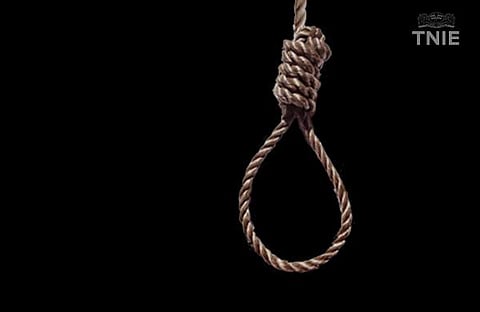India votes against UNGA draft resolution on use of death penalty
UNITED NATIONS: India has voted against a UN General Assembly draft resolution on the use of death penalty, saying it goes against the statutory law of the country where an execution is carried out in the "rarest of rare" cases.
The draft resolution, taken up in the Third Committee (Social, Humanitarian, Cultural) of the General Assembly Tuesday, was approved with a recorded vote of 123 in favour, 36 against and 30 abstentions.
India was among the countries that voted against the resolution, which would have the Assembly call on all States to respect international standards on the rights of those facing death penalty and ensure that it is not applied on the basis of discriminatory laws or as a result of discriminatory or arbitrary application of the law.
First Secretary in India's Permanent Mission to the UN Paulomi Tripathi, giving the country's explanation of vote, said the resolution sought to promote a moratorium on executions with the aim of abolishing death penalty.
"My delegation has voted against the resolution as a whole, as it goes against statutory law in India," she said.
"In India, the death penalty is exercised in 'rarest of rare' cases, where the crime committed is so heinous that it shocks the conscience of the society.
Indian law provides for all requisite procedural safeguards, including the right to a fair trial by an independent Court, presumption of innocence, the minimum guarantees for defence, and the right to review by a higher court," she said.
The draft resolution's passage followed an intense debate and Singapore introduced an amendment on behalf of 34 countries that reaffirmed the countries' sovereign right to develop their own legal system.
The Committee then approved this amendment by a recorded vote of 96 in favour to 73 against, with 14 abstentions.
India voted in favour of this amendment.
By its terms, the Assembly would reaffirm the sovereign right of all countries to develop their own legal systems, including determining appropriate legal penalties, in accordance with their international law obligations.
Tripathi said every State has the sovereign right to determine its own legal system and appropriate legal penalties and it was in this context that India voted in favour of the amendment but has voted against the resolution as a whole.
Singapore's delegate decried the draft resolution's "one-size-fits-all" approach to a delicate question, which seeks to impose a particular vision of the world onto others.
The representative of Singapore said the amendment aimed to ensure respect for the diversity of views.
The amendment is simple and neutral and it does not take a position on the substance of the draft resolution, nor make judgments about State policies, Singapore said.
Tripathi said the Indian laws have specific provisions for commutation of death penalty in the case of pregnant women and has rulings that prohibited executions of persons with mental or intellectual disabilities, while juvenile offenders cannot be sentenced to death under any circumstances.
Death sentences in India must also be confirmed by a superior court and an accused has the right to appeal to a High Court or the Supreme Court, which has adopted guidelines on clemency and the treatment of death row prisoners, she said.
Tripathi said "poverty, socio-economic, psychic compulsions, undeserved adversities in life" constituted new mitigating factors to be considered by courts in commuting a death sentence to life imprisonment.
She also said the President of India in all cases, and the Governors of States under their respective jurisdictions, have the power to grant pardons, reprieves, respites or remissions of punishment or, to suspend, remit or commute the sentence of death penalty.

